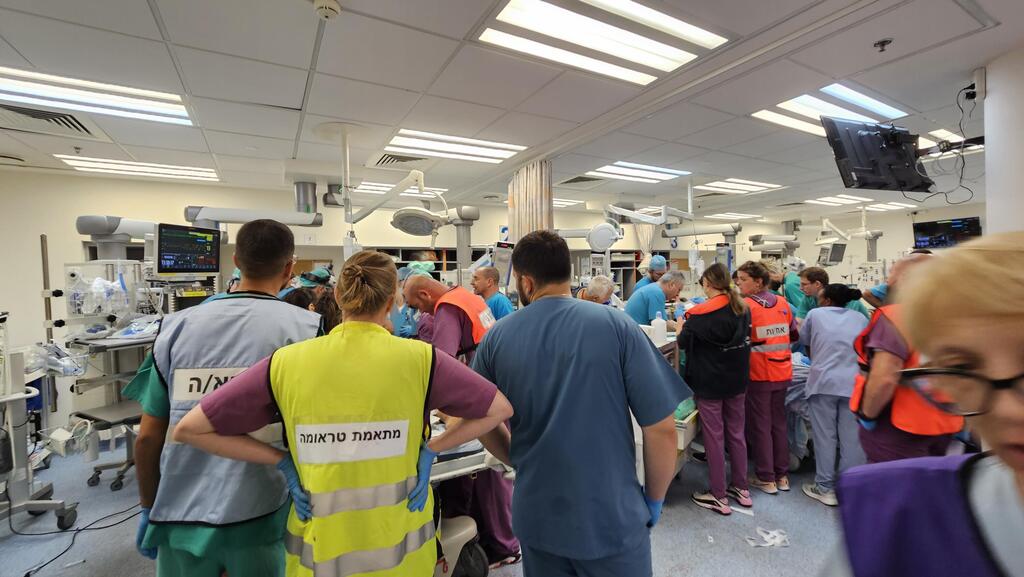Getting your Trinity Audio player ready...
More than 1,000 senior doctors and physicians in the health care system are warning that "without security and civil equality in military service, there is a real danger to the existence of the State of Israel." In a statement released on Sunday, they wrote: "In recent months, given the expected future of the country, we have witnessed the departure of doctors from the country. This is a 'silent' phenomenon but is felt within the ranks of the health-care system and beyond, in technology, business and academic sectors as well."
This letter is circulating throughout the country while a hearing is taking place in Israel's Supreme Court, debating the decision to enlist ultra-Orthodox men into the Israel Defense Forces. The doctors called on the government and the Knesset to "immediately cease destructive activities for our future here and to act resolutely to implement a social-national-economic strategy that will restore the country to a sustainable path."
According to the health care professionals who signed the letter, "even in the toughest hours of Israel, the health care system continues to be a solid pillar working tirelessly to ensure the peace and health of Israeli citizens. But the resilience of the economy and public service in Israel today is in doubt given the growing inequality in service, public service and tax payments. The continued existence of the country, given the security threats and the civic challenges it faces, depends largely on the participation of all population groups in the burden of civic duties."
"We, senior doctors in the health care system, strongly oppose the legislation initiative that perpetuates inequality in military service. According to the recent proposed law, the annual obligatory reserve duty days are expected to increase significantly, up to 42 days per year for reservists up to the age of 45 (compared to 18 days up to the age of 40), and up to 55 days per year for officers up to the age of 50 and doctors up to the age of 52 (compared to 28 days up to the age of 45). Half of medical students, residents and young professionals are active reserve duty soldiers."
According to the doctors, "a committed public is the backbone of the health care system in particular and Israeli society as a whole. During routine times, it contributes its time and effort to promote a better and more just society, and in times of emergency it risks itself for the greater good. Extending reserve duty service will severely affect the availability of specialist doctors in the health care system and the training of medical students and residents."
They warned that "equality in military service is a cornerstone of a democratic and just society and is a necessary condition for social solidarity and the existence of the State of Israel. These processes are destructive. In recent months, given the expected future of the country, we have witnessed the departure of doctors from the country. This is a 'silent' phenomenon but is keenly felt within the ranks of the health care system and beyond, in technological, business, and academic sectors as well. There is a real danger that the population that will give up in Israel will be less educated and less innovative, thus encouraging further emigration of the educated and working population until the country is depleted of the essential human resources necessary for its continued existence."





